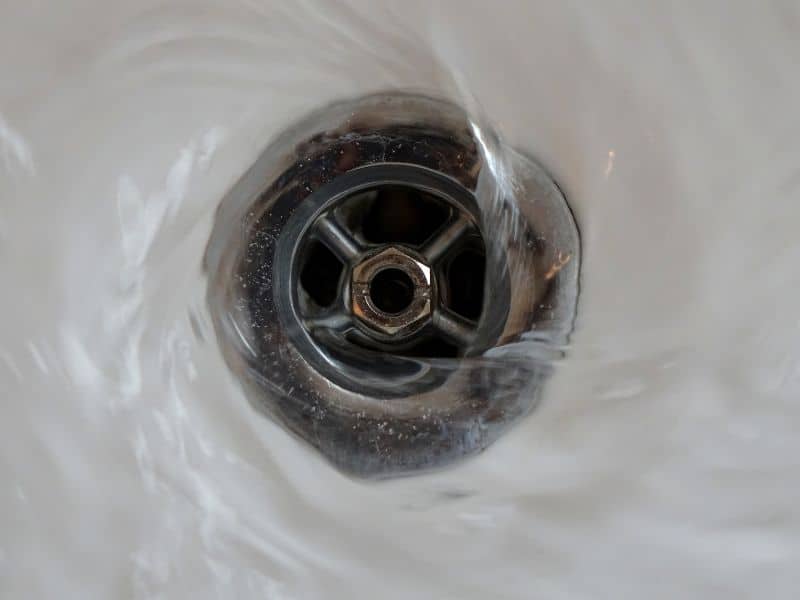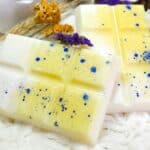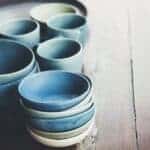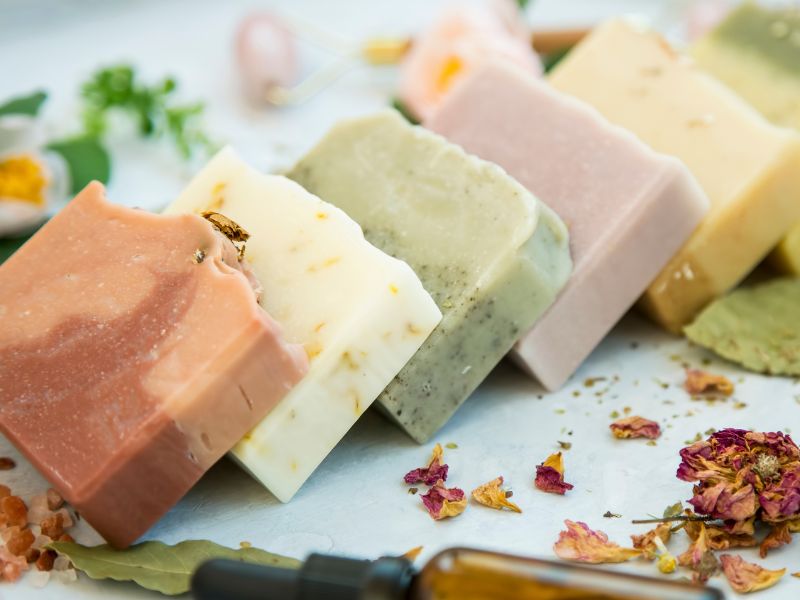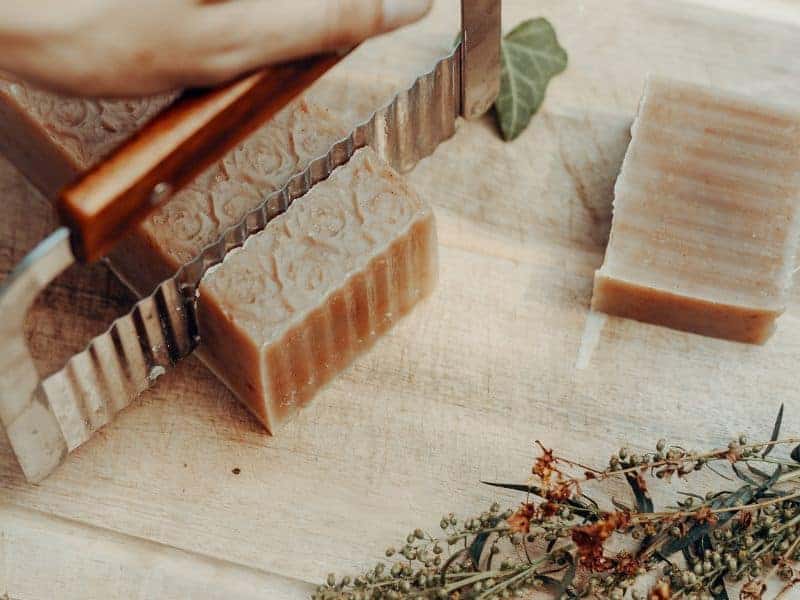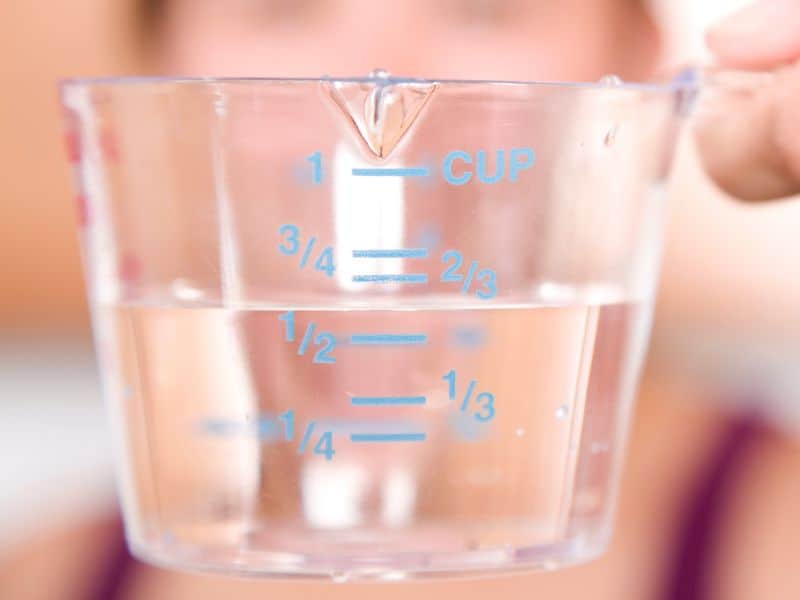Welcome to our exploration of drains, soap, and water. In this first section, we’ll set the stage for our discussion. We’ll delve into the importance of understanding what causes drain clogs. This knowledge is key to maintaining a well-functioning plumbing system. So, does homemade soap clog drains?
Homemade soap can contribute to drain clogs due to residue buildup, but it’s not typically the sole cause. Proper usage and regular drain maintenance can prevent significant clogging issues.
In addition, commercial soap can also clog drains. It can leave a residue, known as soap scum, which can build up over time and potentially cause blockages, especially when combined with other substances like hair or grease. Regular drain cleaning can help prevent this issue.
So, it’s important to understand what causes these clogs and that it can happen with both commercial and homemade soap.
When you know the common culprits, you can take steps to prevent it. Let’s take a closer look at this issue below.
Homemade Soap And Buildup: The Facts
This brings us to our central question: does homemade soap cause buildup in drains? The answer isn’t as straightforward as you might think. Like many substances that go down our drains, homemade soap can indeed contribute to buildup over time.
This buildup can be similar to what occurs with other common clog culprits, such as hair. When soap residue combines with hair and other debris, it can form a sticky mass that clings to the sides of your pipes. Over time, this buildup can narrow the passage in your pipes, making it harder for water to flow through.
The long-term effects of soap buildup can be problematic. As the passage in your pipes becomes narrower, clogs can occur more frequently. In severe cases, the buildup can become so hard and thick that it’s difficult to remove, even with a drain snake or chemical drain cleaner.
What is Soap Scum?
Soap scum is a common issue that arises after using soap. It is the stubborn residue that forms on various surfaces, including drains. When soap mixes with water, a chemical reaction occurs, resulting in the formation of this filmy buildup.
This residue, often seen as a white or grayish layer, consists of soap particles, body oils, dirt, and minerals from hard water. It tends to accumulate in areas with hard water, where the minerals interact with the soap, making the residue more persistent and noticeable.
Over time, soap scum can accumulate in drain pipes, narrowing their diameter and obstructing water flow. This buildup can trap other debris like hair, exacerbating drain clogs. Besides its unsightly appearance, hardened soap scum can be challenging to remove from surfaces.
To prevent soap scum buildup, regular cleaning and maintenance are crucial. Thoroughly rinsing surfaces to remove soap residue and using specialized products formulated to combat soap scum can help minimize its formation. Addressing hard water issues through water softening methods can also reduce the likelihood of soap scum.
The Variety in Homemade Soap: Does Type Matter?
Homemade soap comes in many forms. Some people make laundry soap at home, while others might craft a bar of soap using coconut oil or olive oil. The question then arises: do these different types of homemade soaps have different effects on our drains?
Homemade laundry soap is often used in washing machines, but it can also be used for general cleaning purposes. It’s designed to dissolve well in water, but if it doesn’t dissolve fully, it could contribute to clogs.
Coconut oil soap is popular for its rich lather and moisturizing properties. However, coconut oil solidifies at room temperature. If large amounts of coconut oil soap go down your drain, it could potentially solidify and cause blockages.
Olive oil soap is gentle and moisturizing, making it a great choice for sensitive skin. But like other soaps, it can leave a residue in your pipes. Over time, this could cause buildup and lead to clogs.
The Soap Saga: Homemade vs. Commercial
Now, let’s turn our attention to soap. There are two main types we’ll consider: homemade soap, crafted with love and care in your own kitchen, and commercial soap, manufactured and purchased from a store. Both types of bar soap, when used and rinsed off, interact with water and travel down our drains.
Homemade soap is often made from natural ingredients, such as oils and lye. Many people enjoy making their own soap because they can control what goes into it. However, homemade soap can leave a residue in your pipes, which can contribute to clogs.
Commercial soap, on the other hand, is designed to lather well and rinse off cleanly. However, it often contains chemicals that can be harsh on your pipes. So, while commercial soap might not leave as much residue as homemade soap, it could still contribute to clogs in other ways.
The Intricacies of Drains and Drain Pipes
Drains and drain pipes are essential to our homes. They guide water safely out, keeping our spaces dry and clean. Drains serve as the entry points, while drain pipes form the network of tunnels that guide the water safely out.
However, these systems can face challenges. The most common of these is clogged drains. Clogs can occur due to a variety of reasons, from accumulated hair to solidified grease. But what about soap? Could the soap we use contribute to these clogs?
To answer this question, we need to understand how soap interacts with water and our plumbing systems. This will help us determine whether homemade soap could be causing your drains to clog.
Water: The Unsung Hero in Drainage
Water plays a crucial role in our drainage systems. But not all water is the same. It can be hard or soft, and this can affect your drains. Hard water, for instance, contains minerals like calcium and magnesium. These minerals can build up in your pipes over time, potentially leading to clogs.
On the other hand, soft water has fewer minerals. This means it’s less likely to cause mineral buildup in your pipes. However, soft water can cause its own issues. For instance, it can cause soap to lather more, which could potentially lead to more soap scum buildup in your pipes.
Understanding the type of water in your home can help you better manage your drains. It can also help you choose the right type of soap to use.
Natural Soaps and Drains: Are They Better?
Natural soaps, made with minimal, earth-friendly ingredients, are another category to consider. But do they behave the same way as homemade soaps when it comes to drains?
Natural soaps often contain simple ingredients, like oils and lye. They’re free from synthetic chemicals, making them a gentler choice for your skin and the environment. However, they can still leave a residue in your pipes, which can contribute to clogs.
When comparing natural soaps and homemade soaps, it’s important to consider how well they dissolve in water. Soaps that don’t dissolve well can leave more residue in your pipes, leading to more buildup over time. So, while both types of soap can potentially cause clogs, the risk may be higher with soaps that don’t dissolve well.
Chemicals and Cleaners: A Double-Edged Sword
Many people turn to chemicals and commercial cleaners to unclog their drains. These products can be effective in clearing blockages, but they also have potential downsides.
Chemical drain cleaners are powerful. They can dissolve hair, soap, and other common clog culprits. However, they’re also harsh and can cause damage to your pipes, especially with repeated use.
Commercial cleaners, while convenient, often contain harsh chemicals as well. These chemicals can wear down your pipes over time, leading to leaks and other problems. So, while these products can help with clogs, they should be used with caution.
The Art of Preventing and Addressing Clogged Drains
Preventing clogs is better than dealing with them. There are several strategies you can use to keep your drains clear and flowing smoothly.
One of the best ways to prevent clogs is to be mindful of what goes down your drain. Try to keep hair and large soap pieces out of your drain as much as possible. Using a drain guard can help catch these items before they go down the drain.
Another useful tool for dealing with clogs is a drain snake. This tool can reach into your pipes and pull out clogs, making it a good option for stubborn blockages. However, it’s important to use it carefully to avoid damaging your pipes.
Finally, consider using environmentally friendly alternatives to chemical drain cleaners. These products are gentler on your pipes and on the environment. They can be a good option for minor clogs and for regular drain maintenance.
Frequently Asked Questions
Homemade soaps that contain oils that solidify at room temperature, like coconut oil
Natural soaps, like homemade soaps, can leave residue and potentially contribute to drain clogs if not properly rinsed away.
Yes, there are eco-friendly drain cleaners available that can help clear minor clogs without causing harm to the pipes or the environment.
Using a drain snake or calling a professional plumber can help remove soap buildup and clear the clogged drain.
Yes, regular drain maintenance, including periodic cleaning and practicing good drain habits, can help prevent soap-related clogs and maintain clear drains.
Conclusion
We’ve come a long way in our exploration of drains, soap, and clogs. We’ve learned that homemade soap, like many substances, can contribute to buildup in your pipes. This buildup can lead to clogs over time.
However, we’ve also learned that there are many strategies for preventing and dealing with clogs. By being mindful of what goes down our drains and by using the right tools and products, we can keep our drains clear and our plumbing systems functioning well.
So, does homemade soap clog drains? The answer is: it can, but it doesn’t have to. With the right practices, you can enjoy your homemade soap without worrying about clogs. Happy plumbing!

